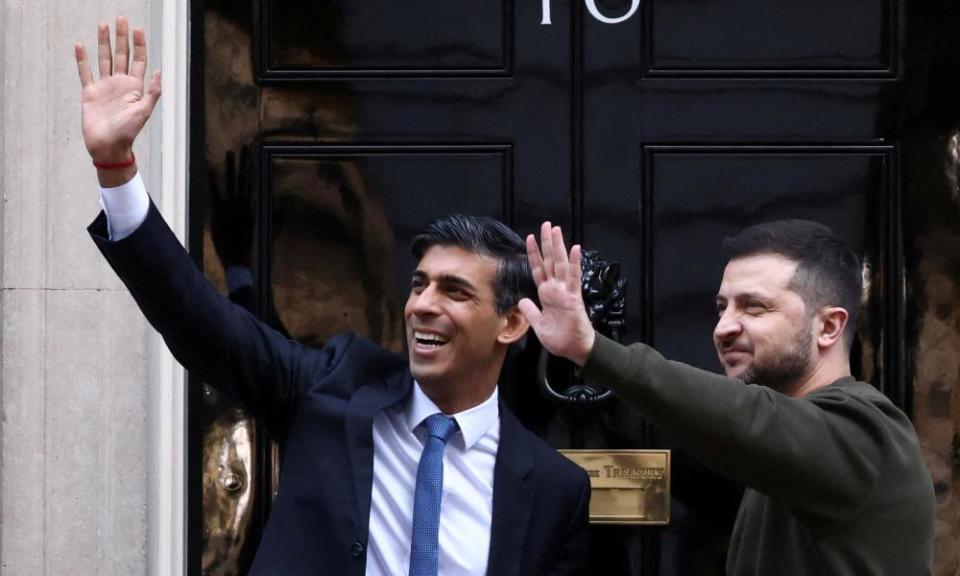The Guardian view on UK foreign policy: a post-Brexit void

Foreign policy/UK support for Ukraine is a noble stance that masks a strategic voidIn an audit of Boris Johnson’s time as prime minister, one good decision to be recorded for posterity – perhaps the only one – was unflinching support for Ukraine when it was invaded by Russia.
The importance of that alliance, and Ukrainian gratitude for it, were powerfully expressed in an address to parliament on Wednesday by President Volodymyr Zelenskiy, on what is only his second foray abroad since the war began.
The Russian military has so far performed below Vladimir Putin’s expectations, but he compensates for lack of military prowess with volume of artillery and conscripted bodies to throw at the frontline. It is a bloody and inhumane method, but apparently sustainable for a dictator who cares as little about the lives of his own citizens as he does about Ukrainians. That is why western support for Mr Zelenskiy must stay firm.
Rishi Sunak has rightly not wavered from the course set by Mr Johnson. It is his signature foreign policy, thanks to the salience of Ukraine as the single biggest security challenge facing Europe. Having a prominent stance on the war creates an illusion of direction and purpose in the world when, in reality, Britain is adrift. That is the more discreditable part of Mr Johnson’s strategic bequest to his successors – a Brexit designed to minimise practical engagement with continental partners.
Some barriers to diplomacy were inevitable from the simple fact of leaving the EU: Brussels summits are where leaders of the continent’s democracies routinely hobnob. But the detachment did not have to be wilfully stubborn and ill-tempered. The version of Brexit that Mr Johnson enacted was born of an ideological conviction that Europe is a drag on British economic performance, that severance from its markets has no cost and that more lucrative partners are waiting elsewhere around the globe.
That was a delusion. It bred fear of any legal entanglement beyond the relatively unambitious trade and cooperation agreement that Mr Johnson negotiated. Brexit put mistrust and rivalry where previously there had been automatic partnership. The low point was surely the Conservative leadership contest of 2022, when Liz Truss was unable to say whether the French president, Emmanuel Macron, was a “friend or foe” of Britain.
A prime minister’s relationship with Europe – its leaders and its institutions – inevitably needs more maturity and care. Does Mr Sunak understand that? He has cultivated better relations with Mr Macron; there is an Anglo-French summit in early March, although the prime minister’s agenda is circumscribed by the need to display quick progress in cutting cross-Channel illegal migration at the expense of discussions on a wider horizon. Meanwhile, there is no visible effort to build a rapport with the German chancellor, Olaf Scholz.
For a generation, Britain’s European policy was shaped by EU membership. Now it is shapeless. Russian aggression against Ukraine has focused minds across the continent’s democracies on the need for solidarity and strategic alliance. Nato is part of that, as is the EU. Britain remains a key fixture in one of those alliances, while deep in denial about the function of the other one.
That is not a sustainable foreign policy concept. Mr Sunak’s military commitment to Ukraine is the right position, but it cannot be extrapolated into anything more than a tactical alliance while so many other questions about Britain’s place in the world are unanswered.

 Yahoo Movies
Yahoo Movies 